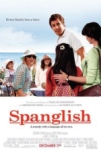Blog
A Priest's View on Prayer Study
Via travisstanley.net, an op-ed piece by Raymond J. Lawrence, an episcopal priest, in the NY Times addresses the recent scientific study on the effectiveness of prayer:
RESPONSIBLE religious leaders will breathe a sigh of relief at the news that so-called intercessory prayer is medically ineffective. ...if it could ever be persuasively demonstrated that such prayer "works," our religious institutions and meeting places would be degraded to a kind of commercial enterprise, like Burger King, where one expects to get what one pays for. Historically, religions have promoted many kinds of prayer. Prayers of praise, thanksgiving and repentance have been highly esteemed, while intercessions of the kind done in the Benson study - appeals to God to take some action - are of lesser importance. They represent a less-respected magical wing of religion. In fact, many theologians reject out of hand the notion that any person or group can effectively intercede with God in any respect. Paul Tillich and Karl Barth, the two major Christian theologians of the 20th century (and certainly no opponents of prayer) would have scoffed at the idea. The Lord's Prayer, the central prayer of Christendom, contains no plea for God to influence specific events in people's lives. The news from science will not lead religious people to stop praying for others. Prayers are expressions of empathy that strengthen a caring community and bring comfort to those who are suffering. Comfort in this context undoubtedly has therapeutic health benefits. But scientists should not leap to the assumption that the ruler of the universe can be mechanically requisitioned to intervene in people's suffering or health.
Other recent posts on this subject: Prayer did not help heart patients Ayn Rand Inst. on Prayer Studies So That's What Went Wrong
Spanglish
 On Saturday night we watched Spanglish (2004, PG-13, ScreenIt! review). I really enjoyed it. It hit that same spot that reading The French Lieutenant's Woman and watching The Age of Innocence did. I give it 5 out of 5.
On Saturday night we watched Spanglish (2004, PG-13, ScreenIt! review). I really enjoyed it. It hit that same spot that reading The French Lieutenant's Woman and watching The Age of Innocence did. I give it 5 out of 5.
Wealth and Worship
From an article in The Economist:
Jonathan Gruber, an economist at the Massachusetts Institute of Technology, claims that regular religious participation leads to better education, higher income and a lower chance of divorce. His results* (based on data covering non-Hispanic white Americans of several Christian denominations, other faiths and none) imply that doubling church attendance raises someone's income by almost 10%. So how might churchgoing make you richer? Mr Gruber offers several possibilities. One plausible idea is that going to church yields "social capital", a web of relationships that fosters trust. Economists think such ties can be valuable, because they make business dealings smoother and transactions cheaper. Churchgoing may simply be an efficient way of creating them. Another possibility is that a church's members enjoy mutual emotional and (maybe) financial insurance. That allows them to recover more quickly from setbacks, such as the loss of a job, than they would without the support of fellow parishioners. Or perhaps religion and wealth are linked through education. Mr Gruber's results suggest that higher church attendance leads to more years at school and less chance of dropping out of college. A vibrant church might also boost the number of religious schools, which in turn could raise academic achievement. Finally, religious faith itself might be the channel through which churchgoers become richer. Perhaps, Mr Gruber muses, the faithful may be "less stressed out" about life's daily travails and thus better equipped for success. This may make religion more appealing to some of those who turn up only once a year. But given that Jesus warned his followers against storing up treasures on earth, you might think that this wasn't the motivation for going to church that he had in mind.
We Bring Democracy To The Fish
As featured on The Writer's Almanac: "We Bring Democracy To The Fish" by Donald Hall from White Apples and the Taste of Stone
We Bring Democracy To The Fish It is unacceptable that fish prey on each other. For their comfort and safety, we will liberate them into fishfarms with secure, durable boundaries that exclude predators. Our care will provide for their liberty, health, happiness, and nutrition. Of course all creatures need to feel useful. At maturity the fish will discover their purposes.
Pages
Theme by Danetsoft and Danang Probo Sayekti inspired by Maksimer